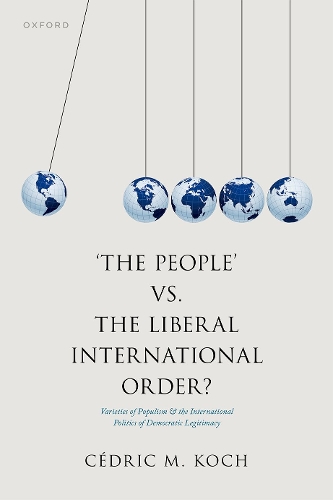
・ISBN 978-0-19-890102-0 hard GB£ 143.00
¥40,898.- (税込) *
| 著者・編者 | Koch, Cedric M., |
|---|---|
| 出版社 | (Oxford U. Pr., UK) |
| 出版年 | 2024 |
| ページ数 | 528 pp. |
| ニュース番号 | <726-856> |
Why, since the 1980s, did populists rise across liberal democracies? And, given that they challenge democracies and the liberal international order (LIO) in radical but diverse ways, which variety of populism gains under which conditions? Rather than emphasising populists as a cause of the crises of liberal order, 'The People' vs. the Liberal International Order? argues that the historical empowerment of liberal international institutions itself gradually undermined democratic legitimacy perceptions among citizens and thereby boosted varieties of populism. Moving beyond theoretical accounts and bridging comparative politics and international relations, Koch presents comparative evidence from survey data, party manifestos, societal data, and international institutional power across 37 democracies between 1980 and 2019 and uses both statistical analyses and a comparative case study of eight states in the EU to support his claims. Accounting for existing economic, cultural, domestic political, and supply-side explanations, the author shows that normative evaluations relating to international institutions have contributed to gains for populist challengers across the spectrum in recent decades. Yet, the forces which push voters to populists and party competition itself together structurally benefit the populist radical right compared to populism's more inclusionary version on the radical left. Populism by itself, he argues, therefore seems unable to form a cosmopolitan democratic corrective in the new international politics of democratic legitimacy where alternative institutional trajectories now compete for citizen acceptance. Koch argues that for democrats and internationalists to still contain populist forces, rather than merely defending the LIO against 'barbarians at the gate', more self-critical reform enabling policy change and democratisation of liberal international institutions is needed to address the part of their success rooted in the democratic deficiencies of a globalised world.